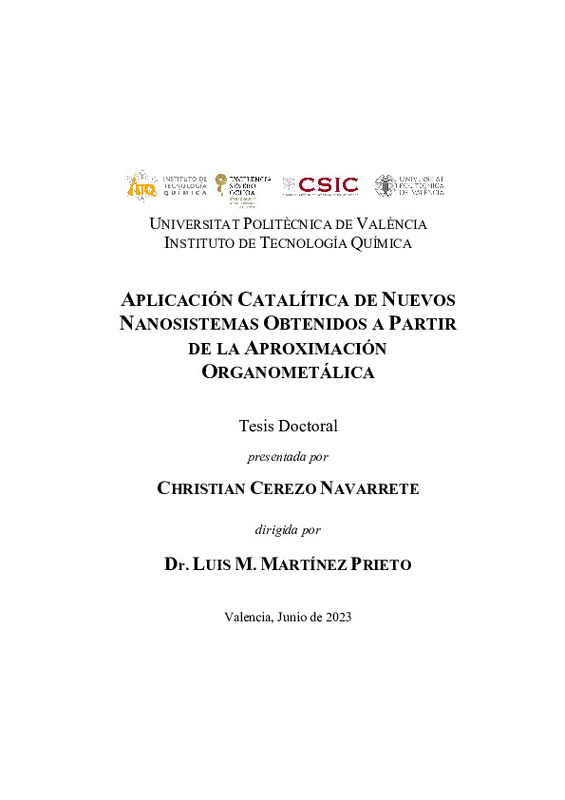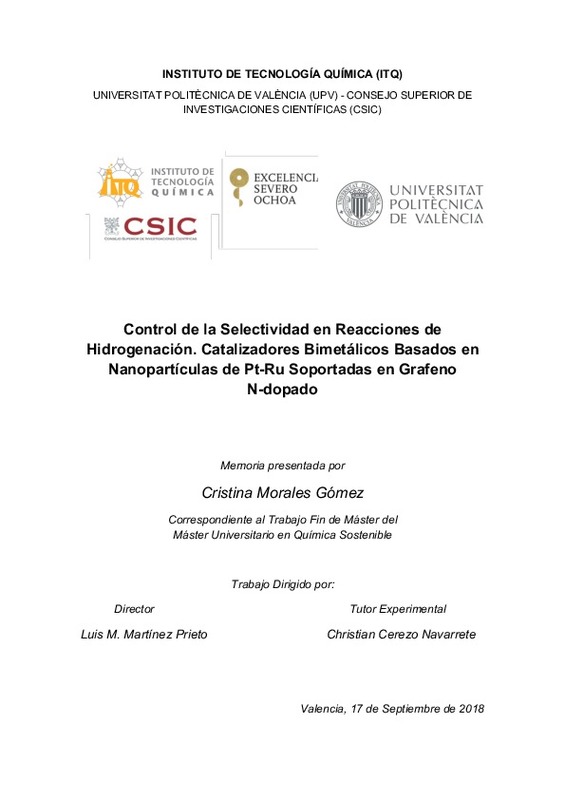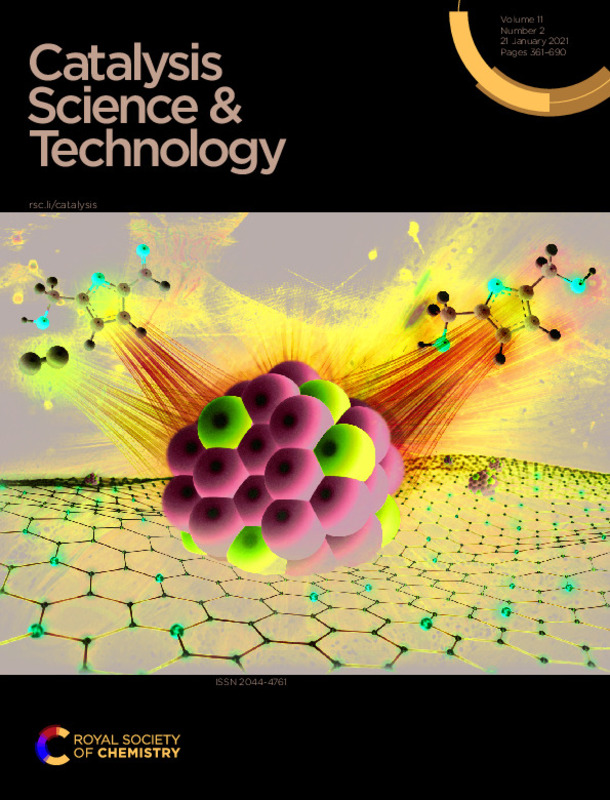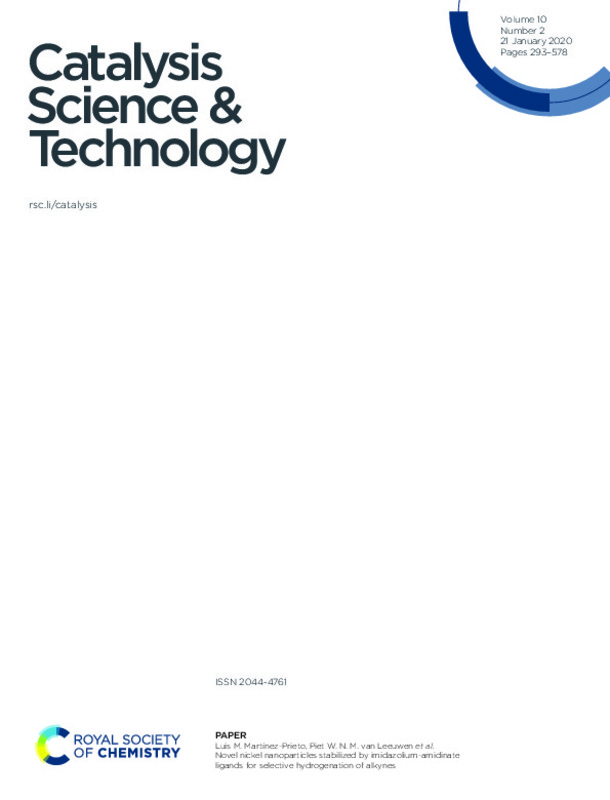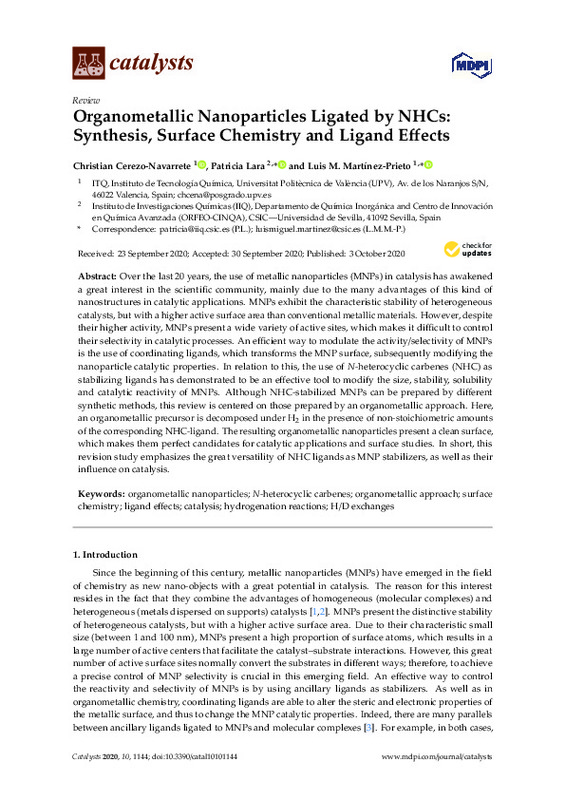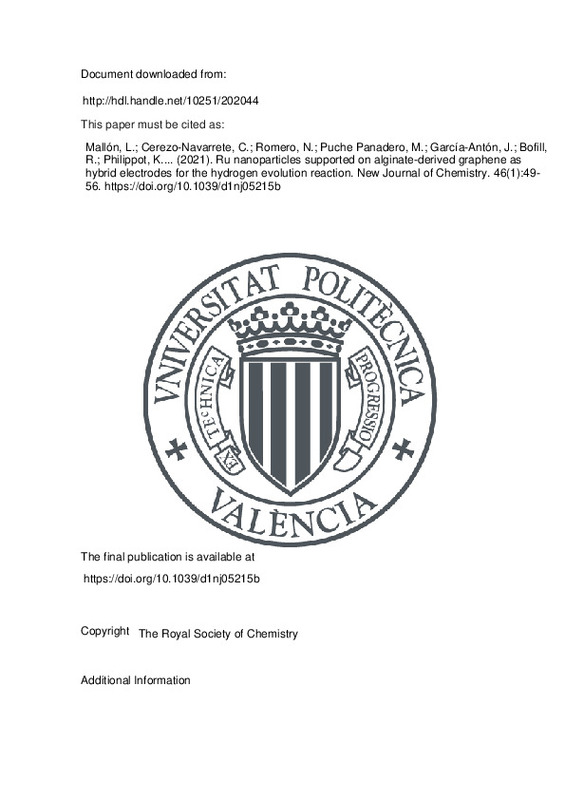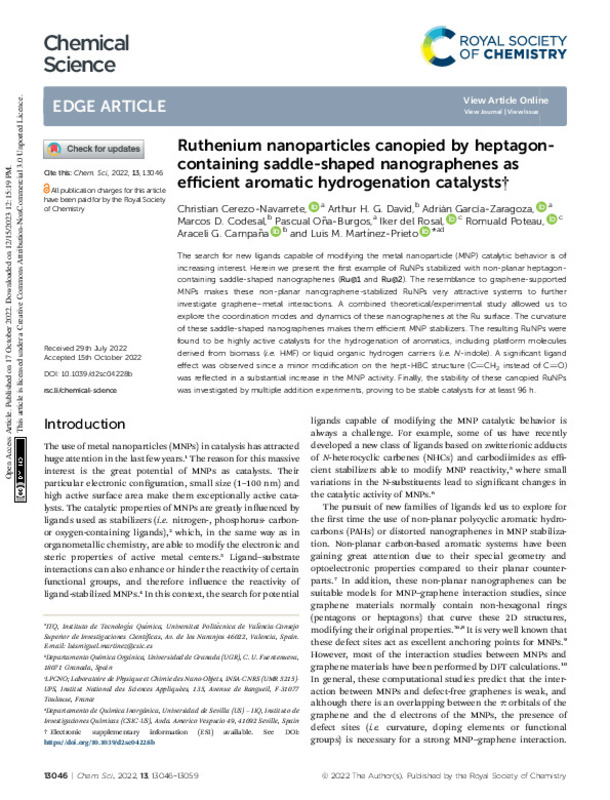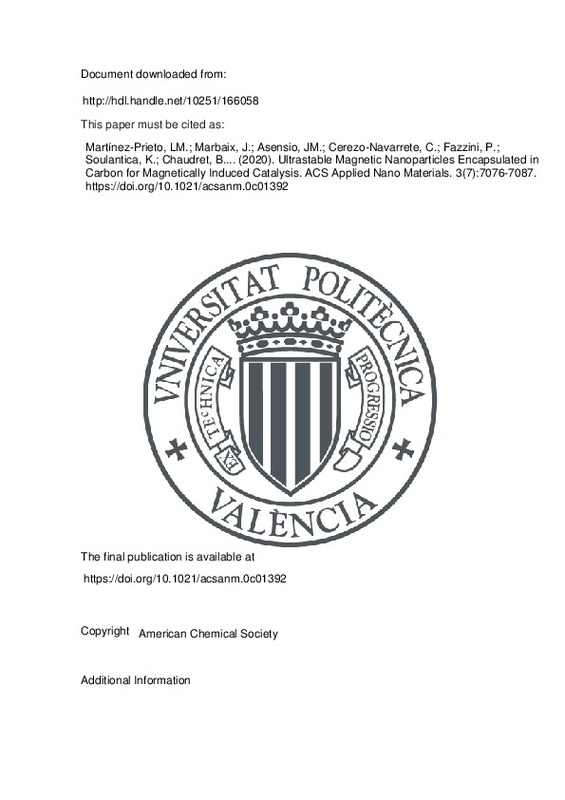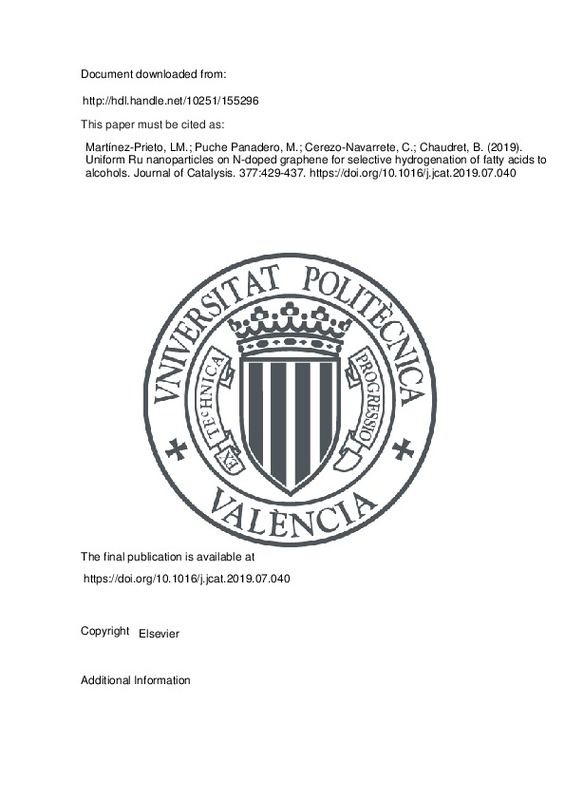

Listar por autor "Martínez Prieto, Luis Miguel"
RiuNet: Repositorio Institucional de la Universidad Politécnica de Valencia
- RiuNet repositorio UPV
- :
- Listar por autor
JavaScript is disabled for your browser. Some features of this site may not work without it.
Buscar en RiuNet
Listar
Mi cuenta
Ayuda RiuNet
Admin. UPV
Listar por autor "Martínez Prieto, Luis Miguel"
Mostrando ítems 1-12 de 12
-
Cerezo Navarrete, Christian (Universitat Politècnica de València, 2023-09-06)[ES] La presente tesis doctoral se desarrolla en el ámbito de la catálisis, la cual está enmarcada dentro del concepto de Química Sostenible. En concreto, la investigación se ha centrado en el desarrollo y aplicación de ...
-
Morales Gómez, Cristina (Universitat Politècnica de València, 2019-11-06)[ES] En este proyecto se pretende soportar nanopartículas (NPs) bimetálicas de Pt y Ru en materiales grafénicos, mediante una aproximación organometálica. Una vez obtenido los sistemas catalíticos, estos serán testados en ...
-
Cerezo-Navarrete, Christian; Mathieu, Yannick; Puche Panadero, Marta; Morales, Cristina; Concepción Heydorn, Patricia; Martínez-Prieto, Luis Miguel; Corma Canós, Avelino (The Royal Society of Chemistry, 2021-01-21)[EN] Mono and bimetallic platinum-ruthenium nanoparticles have been generated on N-doped graphene (NH2-rGO) following an organometallic approach. Surface and structural studies confirmed the formation of bimetallic MNPs ...
-
Cerezo-Navarrete, Christian; Mustieles Marin, Irene; García-Miquel, Héctor; Corma Canós, Avelino; Chaudret, Bruno; Martínez-Prieto, Luis Miguel (American Chemical Society, 2022-07-15)[EN] The development of energetically efficient processes for the aqueous reduction of biomass-derived compounds into chemicals is key for the optimal transformation of biomass. Herein we report an early example of the ...
-
López-Vinasco, Angela M.; Martínez-Prieto, Luis Miguel; Asensio, Juan M.; Lecante, Pierre; Chaudret, Bruno; Cámpora, Juan; van Leeuwen, Piet W. N. M. (The Royal Society of Chemistry, 2020-01-21)[EN] The main challenge in the hydrogenation of alkynes into (E)- or (Z)-alkenes is to control the selective formation of the alkene, avoiding the over-reduction to the corresponding alkane. In addition, the preparation ...
-
Cerezo-Navarrete, Christian; Lara, Patricia; Martínez-Prieto, Luis Miguel (MDPI AG, 2020-10)[EN] Over the last 20 years, the use of metallic nanoparticles (MNPs) in catalysis has awakened a great interest in the scientific community, mainly due to the many advantages of this kind of nanostructures in catalytic ...
-
Mallón, Laura; Cerezo-Navarrete, Christian; Romero, Nuria; Puche Panadero, Marta; García-Antón, Jordi; Bofill, Roger; Philippot, Karine; Martínez-Prieto, Luis M.; Sala, Xavier (The Royal Society of Chemistry, 2021-12-20)[EN] The development of organic-inorganic hybrid materials for redox catalysis is key to access new energy conversion schemes and the sustainable production of dihydrogen. Here, bare and P-doped graphene arising from the ...
-
Cerezo-Navarrete, Christian; David, Arthur H. G.; García-Zaragoza, Adrián; Codesal, Marcos D.; Oña-Burgos, Pascual; del Rosal, Iker; Poteau, Romuald; Campaña, Araceli G.; Martínez-Prieto, Luis Miguel (The Royal Society of Chemistry, 2022-11-16)[EN] The search for new ligands capable of modifying the metal nanoparticle (MNP) catalytic behavior is of increasing interest. Herein we present the first example of RuNPs stabilized with non-planar heptagon-containing ...
-
Cerezo-Navarrete, Christian; Marin, Irene Mustieles; Marini, Carlo; Chaudret, Bruno; Martínez-Prieto, Luis Miguel (Elsevier, 2024-06-15)[EN] Controlling product distribution in CO2 hydrogenation is of great scientific interest, the selective CO production through the reverse water-gas shift reaction (RWGS) being one of the most investigated processes. ...
-
García Zaragoza, Adrián (Universitat Politècnica de València, 2021-09-17)[ES] Desde hace más de 20 años, las nanopartículas metálicas (MNPs, del inglés metalic nanoparticles) soportadas han suscitado un interés creciente en el campo de la catálisis debido a sus excelentes características. Por ...
-
Martínez-Prieto, Luis Miguel; Marbaix, Julien; Asensio, Juan M.; Cerezo-Navarrete, Christian; Fazzini, Pier-Francesco; Soulantica, Katerina; Chaudret, Bruno; Corma Canós, Avelino (American Chemical Society, 2020-07-24)[EN] Magnetically induced catalysis using magnetic nanoparticles (MagNPs) as heating agents is a new efficient method to perform reactions at high temperatures. However, the main limitation is the lack of stability of the ...
-
Martínez-Prieto, Luis Miguel; Puche Panadero, Marta; Cerezo-Navarrete, Christian; CHAUDRET, B. (Elsevier, 2019-09)[EN] Ruthenium nanoparticles (Ru NPs) supported on reduced-graphene oxide doped with N (NH2-rGO) was synthesized and used for the selective hydrogenation of fatty acids to alcohols, being the hydrogenation of palmitic acid ...
Mostrando ítems 1-12 de 12

Universitat Politècnica de València. Unidad de Documentación Científica de la Biblioteca (+34) 96 387 70 85 · RiuNet@bib.upv.es


